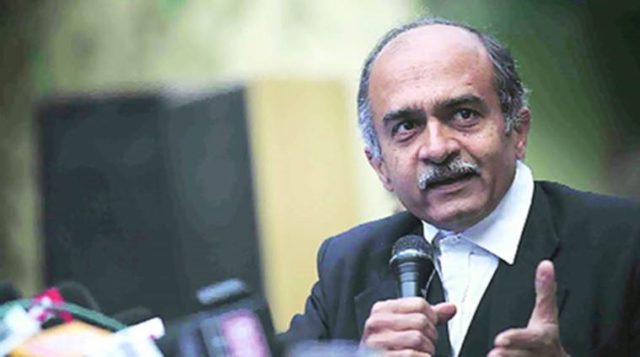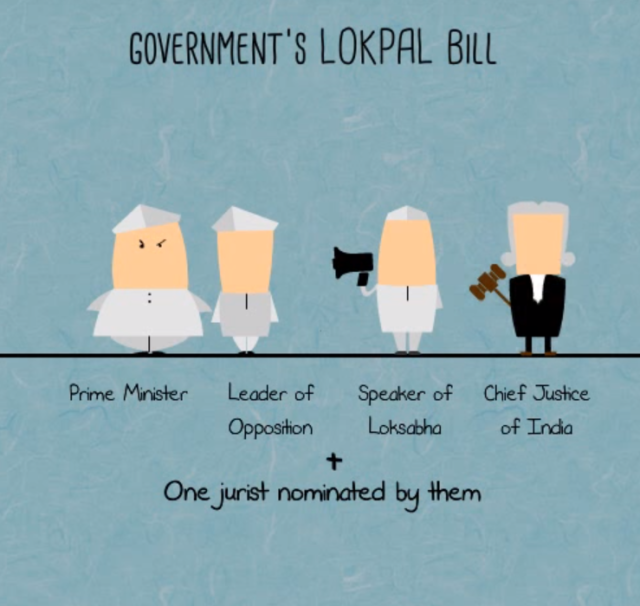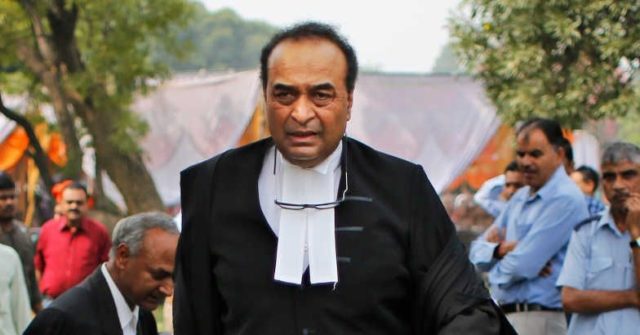PREVIOUS
Lokpal
March 28 , 2019
2454 days
32266
0
- A Lokpal (Meaning: "caretaker of people") is an anti-corruption authority or body of ombudsmen who represents the public interest in the Republic of India.
- The concept of an ombudsman is borrowed from Sweden which was the World’s first country to introduce the Ombudsmen concept.
- The Lokpal has jurisdiction over central government to inquire into allegations of corruption against its public functionaries and for matters connected to corruption.
- It aims to ensure accountability on the part of public officials, including the Prime Minister, but with some safeguards such as exceptions of armed forces.
History of Lokpal
- The term "Lokpal" was coined by Dr. L.M.Singhvi in 1963.
- The concept of a constitutional ombudsman was first proposed in parliament by Law Minister Ashoke Kumar Sen in the early 1960s.
- The first Jan Lokpal Bill was proposed by Advocate Shanti Bhushan in 1968 and passed in the 4th Lok Sabha in 1969, but did not pass through the Rajya Sabha.

- Forty-five years after its first introduction and after ten failed attempts, the Lokpal Bill was finally enacted in India on 18 December 2013.
- It envisaged appointment of a Lokpal at the Centre and Lokayuktas in the States to look into cases of corruption against certain categories of public servants under the Prevention of Corruption Act.
- The Lokpal Act mandated the states to institute Lokayukta within one year of the commencement of the Act.
Composition
- Lokpal will consist of a chairperson and a maximum of eight members, of which
- 50% members of Lokpal shall be judicial members.
- 50% members of Lokpal shall be from SC/ST/OBCs, minorities and women.
Qualifications
- To be eligible for appointment as Chairperson, the applicant must have been a Chief Justice of India, or a judge of Supreme Court or an eminent person having special knowledge and expertise of not less than twenty-five years in the matters of anti-corruption policy, public administration, vigilance, finance, law and management.
- To be eligible for appointment as Judicial Member of Lokpal, the applicant must have been a judge of Supreme Court or a Chief Justice of High Court.
- Eminent persons having special knowledge and expertise of not less than twenty-five years in the matters of anti-corruption policy, public administration, vigilance, finance, law and management are eligible to be appointed as other members of Lokpal.
Select Committee
- Selection of chairperson and members of Lokpal through a selection committee consisting of PM, Speaker of Lok Sabha, leader of opposition in Lok Sabha, Chief Justice of India or a sitting Supreme Court judge nominated by CJI.

- Eminent jurist to be nominated by President of India on basis of recommendations of the first four members of the selection committee "through consensus".
- On May 15th 2018, Mukul Rohtagi (Former Attorney General of India) has been appointed as an eminent jurist in the selection panel of Lokpal.

Search Committee
- The names proposed by the search committee would be scrutinised by the selection committee.
- On September 27th 2018, the Centre constituted an eight-member search committee, to be headed by former Supreme Court judge, Justice Ranjana Prakash Desai, to recommend the chairperson and members of the Lokpal.
Appointment
- On March 19th 2019, Justice Pinaki Chandra Ghosh was appointed as India’s first Lokpal.

- The announcement came after a delay of five years as the Lokpal and Lokayukta Act was passed in 2013.
Jurisdiction
- Lokpal's jurisdiction will cover all categories of public servants.
- Lokpal will also have powers of superintendence and direction over any investigation agency including CBI for cases referred to them by the Lokpal.
- All entities (NGOs) receiving donations from foreign source in the context of the Foreign Contribution Regulation Act (FCRA) in excess of Rs 10 lakh per year are under the jurisdiction of Lokpal.
Who are the public servants covered by the Act?
- The Lokpal has jurisdiction to inquire into allegations of corruption against anyone who is or has been Prime Minister, or a Minister in the Union government, or a Member of Parliament, as well as officials of the Union government under Groups A, B, C and D.
- Also covered are chairpersons, members, officers and directors of any board, corporation, society, trust or autonomous body either established by an Act of Parliament or wholly or partly funded by the Centre.
What happens if a charge is made against the PM?
- The Lokpal cannot inquire into any corruption charge against the Prime Minister if the allegations are related to international relations, external and internal security, public order, atomic energy and space.
When can the PM be inquired?
- The Prime Minister can be inquired on such matters if a full Bench of the Lokpal, consisting of its chair and all members, considers the initiation of a probe, and at least two-thirds of the members approve it.
- Such a hearing should be held in camera, and if the complaint is dismissed, the records shall not be published or made available to anyone.
How can a complaint be made and what happens next?
- A complaint under the Lokpal Act should be in the prescribed form and must pertain to an offence under the Prevention of Corruption Act against a public servant.
- There is no restriction on who can make such a complaint.
- The Lokpal, with respect to Central government servants, may refer the complaints to the Central Vigilance Commission (CVC).
- The CVC will send a report to the Lokpal regarding officials falling under Groups A and B; and proceed as per the CVC Act against those in Groups C and D.
What is the procedure for preliminary inquiry?
- The Inquiry Wing or any other agency will have to complete its preliminary inquiry and submit a report to the Lokpal within 60 days.
- It has to seek comments from both the public servant and “the competent authority,” before submitting its report.
- There will be a ‘competent authority’ for each category of public servant.
Who are the ‘competent authority?
- For instance, for the Prime Minister, it is the Lok Sabha, and for other Ministers, it will be the Prime Minister.
- And for department officials, it will be the Minister concerned.
- A Lokpal Bench consisting of no less than three members shall consider the preliminary inquiry report, and after giving an opportunity to the public servant, decide whether it should proceed with the investigation.
- It may also proceed against the complainant if the allegation is false.
- The preliminary inquiry should normally be completed within 90 days of receipt of the complaint.
Who are the functionaries of the Lokpal?
- The Lokpal will have a Secretary, who will be appointed by the Lokpal Chairperson from a panel of names prepared by the Central government.
- The Secretary will be of the rank of Secretary to the Government of India.
Is there any norm for disclosure of assets?
- Public servants will have to declare their assets and liabilities in a prescribed form.
- If any assets found in their possession is not declared, or if misleading information about these are furnished, it may lead to an inference that assets were acquired by corrupt means.
- For public servants under the State governments, the States have to set up Lok Ayuktas to deal with charges against their own officials.
- - - - - - - - - -
Leave a Reply
Your Comment is awaiting moderation.


